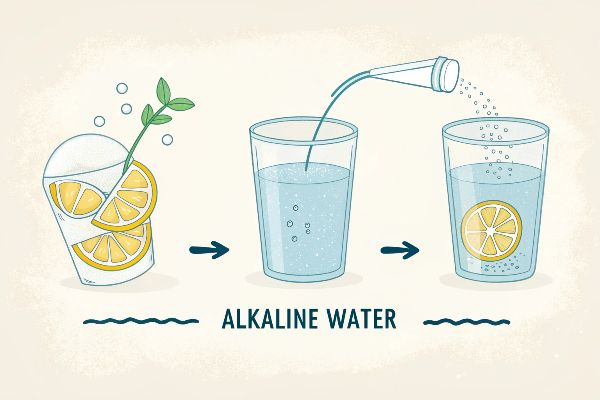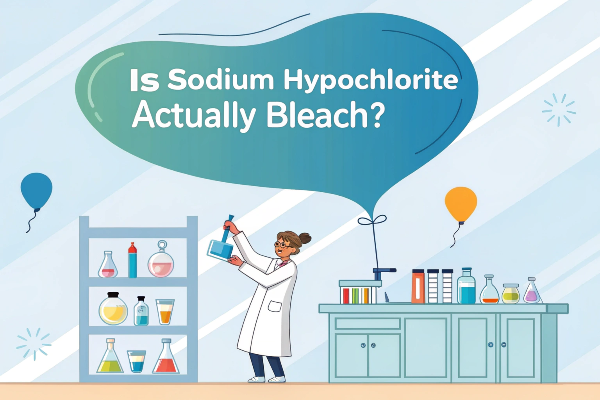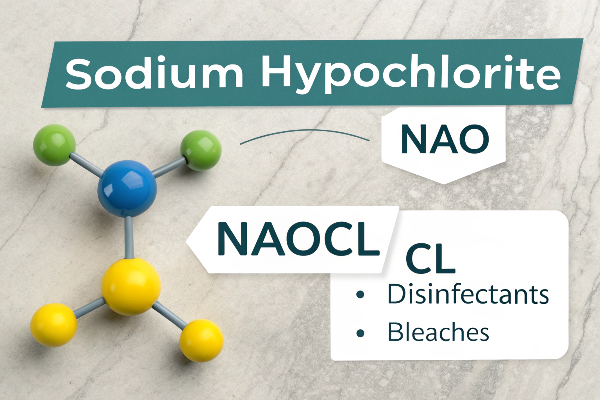Struggling with rust and corrosion on your boat, pipeline, or water heater? You’re not alone. Corrosion is a constant battle for anything metal submerged in water or buried underground.
Sacrificial anodes work by corroding instead of the vital metal components you’re trying to protect. They are more "active" metals that give up their electrons more easily, thus sacrificing themselves.

But there’s more to the story. Let’s dive into the science of sacrificial anodes and explore how they can keep your investments safe from the relentless forces of corrosion. I have been dealing with it.
What is a Sacrificial Anode and How Does it Function?
Are you facing a constant problem? It can be very annoying to deal with a metal part always being damaged. This corrosion process1 happens a lot.
A sacrificial anode is a highly active metal that is used to prevent a less active material surface from corroding. It is "sacrificial" because it corrodes in place of the metal it is protecting.

The Electrochemical Process Explained
The core principle behind sacrificial anodes is the electrochemical process2. Let me simplify it for you:
- Everything is Made of Atoms: Remember basic chemistry? Everything is made of atoms, and atoms have electrons.
- Metals Love to Lose Electrons: Metals, in particular, tend to lose electrons, and this loss of electrons is what we call corrosion (rusting, for example).
- Different Metals, Different Activity: Some metals lose electrons more easily than others. We call these "more active" metals. Zinc, aluminum, and magnesium are more active than steel, for example.
- The Connection: When you connect two different metals (like zinc and steel) in an electrolyte (like seawater or even moist soil), something interesting happens.
- The Sacrifice: The more active metal (zinc, in our example) will lose electrons much faster than the steel. These electrons flow to the steel.
- Protection: Because the steel is receiving a constant supply of electrons from the zinc, it’s less likely to lose its own electrons. It’s protected!
| Aspect | Description |
|---|---|
| Anode | The sacrificial metal (e.g., zinc, aluminum, magnesium) that corrodes. |
| Cathode | The metal being protected (e.g., steel). |
| Electrolyte | The conductive medium (e.g., seawater, soil) that allows ion flow. |
| Electron Flow | From the anode (more active metal) to the cathode (less active metal). |
| Corrosion Process | The anode corrodes, releasing electrons and protecting the cathode from corrosion. |
| Protection | The cathode receives electrons, preventing it from corroding. |
How Effective are Sacrificial Anodes?
Have you ever replaced an anode and the structure is still damaged? It happened to me and I was so frustrated.
Sacrificial anodes are highly effective in specific applications, provided they are correctly chosen, installed, and maintained. Their effectiveness can range, typically offering years of protection.

Factors Influencing Effectiveness
While sacrificial anodes are generally effective, several factors can impact their performance:
- Material Selection3: The choice of anode material (zinc, aluminum, or magnesium) is crucial. It depends on the environment (seawater, freshwater, soil) and the metal being protected.
- Surface Area: The anode needs enough surface area relative to the structure it’s protecting. A larger structure needs a larger anode (or more anodes).
- Water/Soil Chemistry4: The chemical composition of the water or soil (salinity, pH, etc.) can affect the anode’s performance and lifespan.
- Current Demand: If there are other factors increasing corrosion (like stray electrical currents), the anode might deplete faster.
- Regular Replacement is a MUST.
| Factor | Impact on Effectiveness |
|---|---|
| Material | The right material choice is critical for the environment and the protected metal. |
| Surface Area | Needs to be proportional to the structure being protected. |
| Environment | Water/soil chemistry (salinity, pH) affects anode performance. |
| Current Demand | Higher corrosion factors can deplete the anode faster. |
| Maintenance | Regular Check is a MUST. |
What is the Difference Between Sacrificial Anode and Cathodic Protection?
Is cathodic protection just a fancy term? Or it has real meaning and could save your facilities?
Sacrificial anode systems are a type of cathodic protection. Cathodic protection is the broader concept of preventing corrosion by making a metal the cathode of an electrochemical cell.

Two Main Types of Cathodic Protection
There are two main ways to achieve cathodic protection:
- Sacrificial Anodes (Passive System): This is what we’ve been discussing. It relies on the natural potential difference between different metals.
- Impressed Current Cathodic Protection (ICCP)5 (Active System): This uses an external power source (a rectifier) to force a current to flow from an anode to the structure being protected. ICCP is used for larger structures or in situations where sacrificial anodes wouldn’t provide enough current.
Here’s a table summarizing the key differences:
| Feature | Sacrificial Anode System | Impressed Current Cathodic Protection (ICCP) |
|---|---|---|
| Power Source | None (natural electrochemical potential) | External DC power source (rectifier) |
| Anode Type | More active metal (Zn, Al, Mg) | Less reactive material (graphite, mixed metal oxide) |
| Current Output | Limited by natural potential difference | Adjustable, can be much higher |
| Installation | Simpler | More complex |
| Maintenance | Anode replacement | Monitoring of rectifier, anode replacement (less frequent) |
| Cost | Lower initial cost, higher long-term cost (anode replacement) | Higher initial cost, lower long-term cost (potentially) |
| Applications | Smaller structures, pipelines, water heaters, boat hulls | Large structures, buried pipelines, offshore platforms |
What Metal Cannot be Used as a Sacrificial Anode?
Is every metal fit for this mission? Definitely Not, Choosing the wrong metal can do more harm than good.
Noble metals like gold, platinum, and silver cannot be used as sacrificial anodes.6 Because they are much less reactive than the metals typically being protected (like steel).

The Reactivity Series
The key here is the "reactivity series" of metals (also called the galvanic series). This series ranks metals based on how easily they lose electrons.
- More Reactive (Anodic): Zinc, Aluminum, Magnesium (These are good sacrificial anode materials7)
- Less Reactive (Cathodic): Steel, Iron, Copper, Silver, Gold, Platinum (These are the metals we want to protect)
You always want the sacrificial anode to be more reactive than the metal you’re protecting. If you used gold as an "anode" for steel, the steel would corrode faster!
| Metal | Reactivity | Suitability as Sacrificial Anode |
|---|---|---|
| Gold | Very Low | NO |
| Platinum | Very Low | NO |
| Silver | Low | NO |
| Copper | Moderate | NO (usually protected, not sacrificed) |
| Steel/Iron | Moderate | NO (usually protected, not sacrificed) |
| Aluminum | High | YES (good in certain environments) |
| Zinc | High | YES (common choice) |
| Magnesium | Very High | YES (high driving voltage) |
What are the Disadvantages of Sacrificial Anodes?
Sounds perfect, right? It helps a lot on my boat and water heater. But everything has drawbacks.
While effective, sacrificial anodes have limitations, including a limited lifespan, limited driving potential, and the potential for increased weight and drag on structures.

Key Disadvantages
Let’s break down the downsides:
- Limited Lifespan8: They corrode, that’s their job! This means they need to be replaced periodically.
- Lower Driving Voltage9: Compared to ICCP systems, sacrificial anodes have a lower voltage difference, limiting the amount of current they can provide. This makes them less suitable for very large structures or high-corrosion environments.
- Weight and Drag10: On boats or offshore structures, the added weight and drag of the anodes can be a consideration.
- Not Ideal for All Environments: Certain soil conditions or water chemistries can make certain anode materials less effective.
- Overprotection: Although rare, it is also a concern.
| Disadvantage | Explanation |
|---|---|
| Limited Lifespan | They corrode and need regular replacement. |
| Lower Driving Voltage | Less suitable for large structures or high-corrosion environments. |
| Weight/Drag | Can be a concern for boats or offshore structures. |
| Environment | Specific water or soil can affect the materials. |
| Overprotection | It could happen, though rare. |
Conclusion
Sacrificial anodes are a simple but effective way to combat corrosion11. They provide a smart defense for submerged or buried metal structures, from boats to pipelines. Understanding their principles helps make informed decisions about protecting your valuable assets12!
-
Discover the details of the corrosion process and effective prevention methods, including the use of sacrificial anodes. ↩
-
Learn about the electrochemical process to grasp how sacrificial anodes function in protecting metals from corrosion. ↩
-
Choosing the right material is crucial for effectiveness. This resource will guide you in selecting the best anode material for your needs. ↩
-
Water and soil chemistry significantly impact anode performance. Discover how these factors influence corrosion protection in this informative link. ↩
-
ICCP is vital for protecting large structures from corrosion. Discover its workings and benefits through this informative resource. ↩
-
Understanding noble metals is crucial for effective corrosion protection. Explore this link to learn more about their properties and applications. ↩
-
Choosing the right sacrificial anode material is vital for corrosion prevention. This resource will guide you through the best options available. ↩
-
Understanding the lifespan of sacrificial anodes helps in planning maintenance and replacements effectively. ↩
-
Exploring the impact of lower driving voltage can help in assessing the suitability of sacrificial anodes for various applications. ↩
-
Learning about the effects of weight and drag can guide decisions on anode use in marine applications, ensuring optimal performance. ↩
-
This resource will provide you with effective strategies and techniques to combat corrosion, ensuring the longevity of your metal assets. ↩
-
Discover comprehensive methods for asset protection against corrosion, helping you safeguard your investments effectively. ↩





